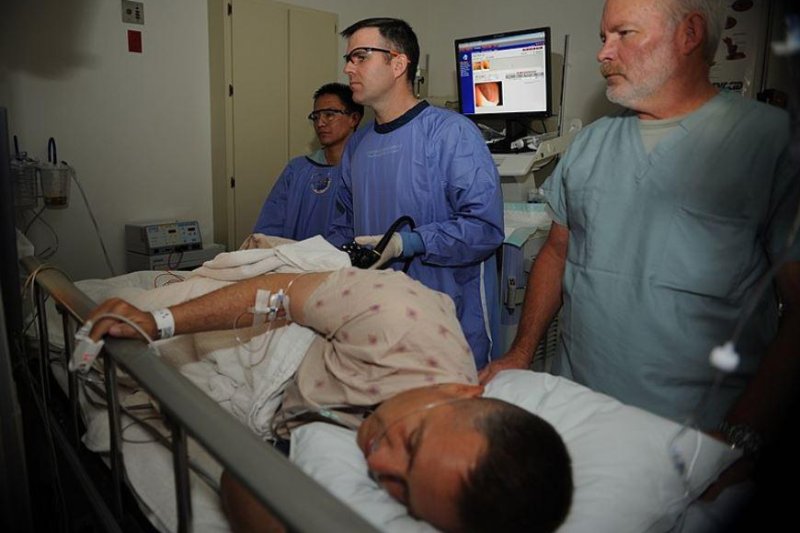Registered Nurse Steven Cherry reviews the monitor while Lt. Cmdr. Eric A. Lavery uses a colonoscope on a patient during a colonoscopy at Naval Medical Center San Diego in 2011. Photo by Mass Communication Specialist 2nd Class Chad A. Bascom/
U.S. Navy
March 13 (UPI) -- Patients in the Veterans Affairs health system who received a colonoscopy saw a 61 percent reduced risk of death from the disease, according to new research.
Researchers with the health system examined a national VA-Medicare database and reported their findings Monday in the Annals of Internal Medicine.
Although colonoscopy is widely used in the VA health care system for colorectal cancer, researchers said its effect on colorectal cancer death mortality was unknown. The VA recommends a colonoscopy as a primary method for colorectal cancer screening for patients at average risk who are age 50 and older.
In a colonoscopy, the large bowel and the distal part of the small bowel are examined using a fiber optic camera attached to a flexible tube passed through the anus.
For the study, researchers identified 4,964 case patients diagnosed with colorectal cancer between 2002 and 2008 and who died of the disease by the end of 2010.
The researchers matched 19,856 patients without prior colorectal cancer diagnosis to the case patients as a control group, finding colonoscopy was associated with reduced mortality from colorectal cancer -- although the link was stronger for patients with left-sided cancer than for right-sided cancer.
On the left side, or descending colon, most polyps and cancers appear, according to the National Cancer Institute. Cancer usually grows around the colon wall and encircles it, usually causing partial blockage and bleeding.
Near the cecum on the right side of the colon, cancers usually grow into the space within the colon.
The authors wrote in the study that reducing variability in colonoscopy effectiveness, especially against right-sided colorectal cancer, is critical to prevent the disease.















